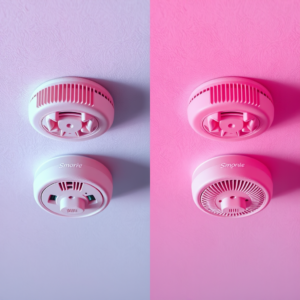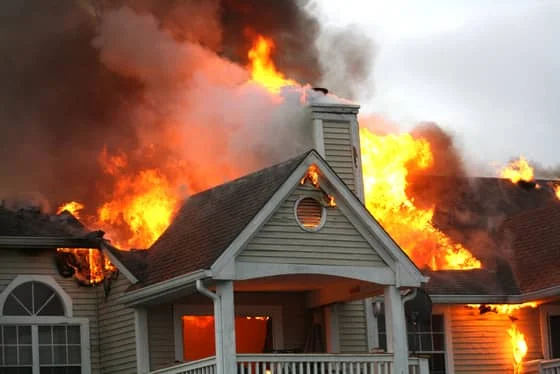Understanding Legal Requirements
One might wonder, “Is it illegal to not have smoke detectors when selling a house?” The answer varies depending on local and national regulations. In most states, it is indeed a legal requirement for homes to have working smoke detectors before they can be sold. It is through these regulations that a minimum degree of safety for all households is assured. This protects the interests of both the selling and the purchasing parties. Nevertheless, the details of these provisions can vary from one location to another.
 For example, certain jurisdictions may impose rules that require installing smoke alarms on every level of the residence while others may demand placement of smoke alarms in all sleeping quarters. It is important for homeowners as well as real estate brokers or agents to know the particular laws of their regions so as to prevent legal problems. Failure to comply with these requirements can result in fines or delays in the sale process.
For example, certain jurisdictions may impose rules that require installing smoke alarms on every level of the residence while others may demand placement of smoke alarms in all sleeping quarters. It is important for homeowners as well as real estate brokers or agents to know the particular laws of their regions so as to prevent legal problems. Failure to comply with these requirements can result in fines or delays in the sale process.
Understanding these legalities is not only about compliance but also about ensuring the safety and well-being of all parties involved.
The Role of Real Estate Agents
Real estate agents are pivotal in guiding both sellers and buyers through the complex web of regulations, including those involving smoke detectors. An experienced agent can assist in making sure that a dwelling complies with all the safety codes required before putting the property up for sale.
Not only must agents be perceptive in the detection of potential problems, but clients must also know the local smoke detector requirements laws. As a result, they will be able to anticipate possible conflicts in advance and assist the sellers in the necessary changes or installations.. This proactive approach not only helps avoid legal troubles but also enhances the marketability of the property.
For buyers, agents can emphasize the importance of checking for functioning smoke detectors during inspections. This knowledge not only helps to safeguard the purchase of the buyer but displays the agent’s level of professionalism and dedication towards their client’s safety as well.
Impact on Home Value
The presence or absence of smoke detectors can significantly impact a home’s value. Is it illegal to not have smoke detectors? While the legal aspect is crucial, it’s also important to consider how potential buyers perceive safety features. A house that has well-placed, working smoke detectors is bound to attract buyers since it lessens the need for any further expenses after the purchase.
On the other hand, a lack of smoke detectors can be a red flag, potentially lowering a property’s value. They are cost-inflicting therefore a buyer or fire cash buyers might ask for a lower price as compensation for the self-installation of such necessary devices. In this way, it is possible to turn the risks associated with local smoke detector regulations into the benefits of the home.
By understanding how safety features like smoke detectors contribute to a home’s overall appeal, sellers can position their properties more competitively in the market.
Educating Homeowners
For homeowners, it’s important to know how to maintain and update smoke detectors to ensure safety and compliance. There should be regular testing of the smoke detectors to determine if they are functioning properly. Moreover, it is advisable that batteries are replaced once yearly, and the whole unit changes after every 10 years.
Choosing the right smoke detector is also important. There are types of smoke detectors: ionization detectors, which are better at detecting fast-flaming fires. There are also photoelectric detectors, which are more effective for sensing smoldering fires. Many experts suggest having both types for complete protection.
Practical Tips for Sellers
If you’re getting ready to sell your home, addressing smoke detector requirements is essential. Start by checking local regulations to ensure you’re compliant. Next, review your home’s smoke detectors, replacing or adding units as needed.
When listing your home make sure to highlight the presence of smoke detectors as a selling point. During open houses, point out these safety features and discuss their benefits and locations in the home. This openness can reassure potential buyers about the home’s safety and compliance.
Also, keeping records of smoke detector maintenance and installation can help demonstrate your home’s readiness for sale. Showing that you’ve taken care of this aspect builds trust with buyers and makes the selling process smoother.
The Importance of Conclusion
Whether you’re a homeowner, real estate agent, or safety advocate, understanding whether it is illegal to not have smoke detectors or not is crucial. Ensuring these devices are installed and maintained is mandatory for compliance and integral to home safety.
For homeowners, having working smoke detectors can increase your home’s value. Real estate agents also have a responsibility to guide clients through compliance, ensuring homes are safe and ready for sale.
Promoting awareness about smoke detector regulations is key to building safer communities. By following these guidelines, everyone involved in real estate can foster a culture of safety and care. Whether selling a home or helping others, remember—smoke detectors are essential. Share this vital knowledge to make every home a safe haven.

